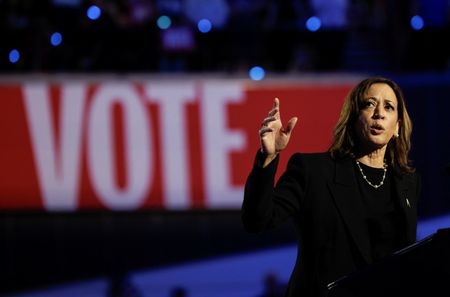By Kanishka Singh and Nate Raymond
WASHINGTON (Reuters) – The chair of the Democratic-led U.S. Senate Judiciary Committee issued a subpoena on Thursday to influential conservative legal figure Leonard Leo as part of an ethics inquiry spurred by reports of undisclosed largesse directed to some conservative Supreme Court justices.
WHY IT’S IMPORTANT
The Supreme Court in late 2023 announced its first formal code of conduct governing the ethical behavior of its justices, following months of outside pressure over revelations of their undisclosed luxury trips and hobnobbing with wealthy benefactors.
The Judiciary Committee in November voted to authorize subpoenas for Leo, a legal activist and co-chair of the Federalist Society who was instrumental in compiling Republican former President Donald Trump’s list of potential Supreme Court nominees, and for Harlan Crow, a billionaire Republican donor and benefactor of conservative Justice Clarence Thomas.
Republican senators walked out of that contentious committee meeting in protest while Democrats cast votes. Some Republicans also questioned the vote’s legitimacy, accusing Democrats of violating procedural rules.
KEY QUOTES
“Since July 2023, Leonard Leo has responded to the legitimate oversight requests of the Senate Judiciary Committee with a blanket refusal to cooperate. His outright defiance left the Committee with no other choice but to move forward with compulsory process,” Dick Durbin, chair of the Senate Judiciary Committee, said in an emailed statement on issuing the subpoena to Leo.
Durbin said Leo “played a central role in the ethics crisis plaguing the Supreme Court” and “has done nothing but stonewall the Committee.”
In an emailed statement, Leo called the subpoena “unlawful and politically motivated” and said he will not be “capitulating” to it. In a letter to Durbin, Leo’s lawyer also said he will not comply with the subpoena.
Taylor Reidy, a spokesperson for the committee’s Republican minority, said the subpoena was “invalid.”
CONTEXT
If the subpoena recipient fails to comply, Democrats would need 60 votes in the 100-seat Senate to initiate a civil enforcement action, meaning they would need the support of some Republicans in the chamber where Democrats hold a narrow majority.
The Democrats also would have the option to make a referral to the U.S. Justice Department, which could choose to pursue criminal contempt proceedings against the subpoena recipients.
(Reporting by Kanishka Singh in Washington and Nate Raymond in Boston; Editing by Leslie Adler)











